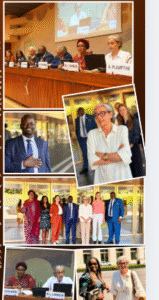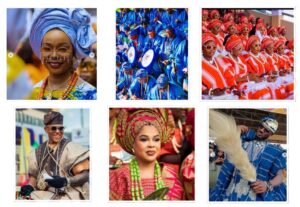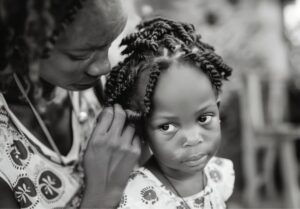By Francisca Sinjae
Womanhood isn’t what it used to be and that’s not a bad thing. Across continents, women are rewriting their own stories in ways that challenge stereotypes, flip expectations, and shape modern society. This isn’t just about empowerment hashtags, it’s visible in boardrooms, classrooms, and living rooms. And the numbers are telling the story.
And this stories are expressed in the following:
- Women in Workspaces Once Marked “Men Only”:
In Saudi Arabia, change is happening at full speed. Women now make up 35% of the workforce a sharp contrast to the 19% recorded in 2016 . Factories that once barred women now employ them in thousands, thanks to policy reforms and economic diversification goals. These shifts aren’t token gestures they’re backed by state incentives and are slowly becoming cultural norms.
Meanwhile, in China, tech has become an unlikely equalizer. 25-30% of tech startups are led by female founders. With digital platforms giving women a voice, female entrepreneurs are building billion dollar ventures and mentoring a new generation of leaders. It’s not just about breaking glass ceilings anymore it’s about redesigning the buildings.
In Nigeria, where formal employment structures differ, women have long driven the informal economy. As of 2022, nearly 50% of Nigerian women were active in the labor force. Think markets, fashion, education, and agriculture industries where women don’t just participate, they lead.
2. Education: The Real Power Move
Globally, women now make up 53% of Bachelor’s and Master’s graduates. They’re outpacing men in higher education in most countries, especially in health, arts, and education. But the PhD and research levels still show disparity, only 30% of the world’s researchers are women. That gap isn’t due to talent Bit’s due to access, funding, and mentorship.
In rural India, villages led by female heads saw a ripple effect: more girls went to school, fewer girls dropped out, and aspirations rose across the board. The reason? Visibility. Girls who saw women in leadership believed they could lead, too.
3. Politics: Slow But Steady
Political spaces still lag behind, but they’re not stuck. Women currently hold 24.9% of national parliament seats worldwide. Local government fares a bit better 36.3% of seats belong to women.
In countries like Rwanda, the story is exceptional. Women occupy over 60% of the parliament, proving what happens when inclusion is mandated and normalized. Elsewhere, quotas and activism are nudging governments to diversify representation. It’s not just about making room at the table it’s about designing a new table altogether.
4. Health, Autonomy & Smart Choices
More women today have the power to make decisions about their bodies, and it shows. In Nigeria, women with financial freedom and education are more likely to access quality healthcare, deliver in clinics, and use modern contraceptives. Studies show that women who feel safe and heard make healthier choices not just for themselves, but for their families.
In the U.S., a recent survey revealed that 59% of women prioritize understanding their health and bodies over relationships, travel, or even money. That’s a bold statement one that reflects the shift toward self-respect over societal pressure.
5. Media & Culture: The Influence Factor
Representation matters. A global survey by the Geena Davis Institute found that 90% of women believe on screen female role models are important. But more than half feel those characters are still too few, too flat, or too unrealistic.
Luckily, pop culture is catching up. Characters like Mabel Mora in Only Murders in the Building or Nollywood’s King of Boys Eniola Salami are complex, flawed, and powerful shaping what modern femininity looks like in diverse ways.
In Conclusion
This cultural shift isn’t a trend. It’s a movement driven by real choices, real policies, and real people. Womanhood in 2025 doesn’t come in one shape or voice it’s multilingual, multifaceted, and multi-talented. The more we invest in education, visibility, and agency, the more the world benefits not just women.







